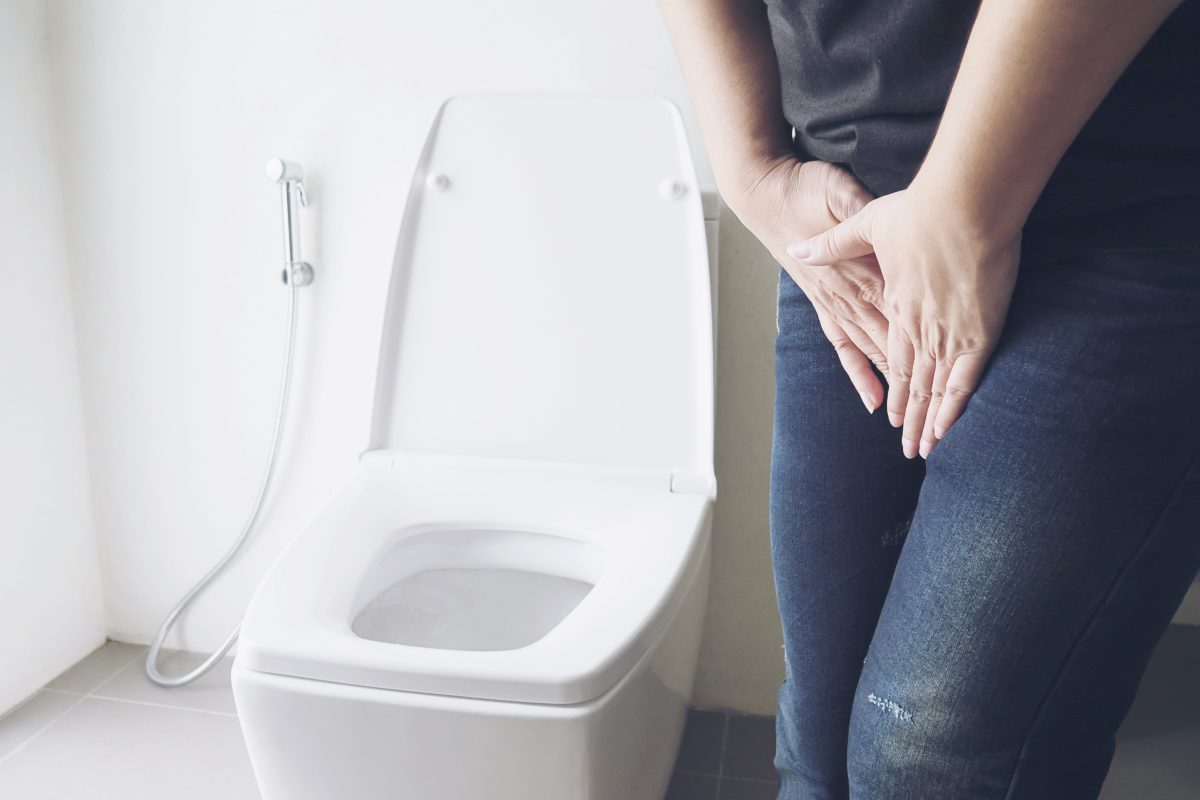Uncovering Common STDs Linked to Urinary Discomfort
Feeling a burning sensation during urination can be alarming. This discomfort might signal common STDs, which often go unnoticed as not everyone shows symptoms. You could be at higher risk if you have multiple partners or engage in unprotected sex within non-monogamous relationships.
Regular screenings are vital for those with high-risk sexual habits, commercial sex workers, and drug users who practice risky behaviors. Don’t ignore signs like pain when peeing or unusual discharge, detecting and treating STDs early helps prevent severe health issues down the line.
Understanding STD-Related Discomfort
Knowing about STD discomfort is key. Not all people with an STD feel sick, but signs can show up in many ways depending on the infection type. Some people may have discharge or itching down there, hurt when they pee or during sex, or get sores around their private parts.
Younger individuals make up half of these cases; risky actions like not using condoms and having various partners increase your chance to catch one. People who do drugs and share needles are also more at risk, they often take chances with safety less often in mind. So what should you do if faced with this threat?
If things start to hurt when you use the bathroom, or any other warning pops up, getting checked out fast matters a lot for your well-being. Remember: play it smart with sexual health; testing could be a life-saver.
Burning Sensation During Urination
When you feel a burn during urination, it’s often due to an infection in your urinary tract. Women face this more as their urethra is short and near the back end. A bladder or urethral issue can make peeing painful, leading to cloudy pee, belly pain, and frequent bathroom trips.
Sometimes the body heals on its own; other times antibiotics are needed. If discomfort spreads to sides or fever hits—seek help fast! Urethral syndrome also stings without bacteria involvement, it comes from damage or irritation likely caused by fragranced products or certain activities like cycling.
Prevent future problems: use condoms, avoid scented items near genitals and choose cotton underwear for good health down there. Regular check-ups catch infections early, and that’s key for simple treatment options through places like The STI Clinic with home testing kits available.
Common Culprits Behind the Burn
If you feel pain when you pee, it might be a sign. Many times, this burn is due to an STD. Chlamydia and gonorrhea are two such infections that can make peeing hurt; they may also give no signs at all.
If untreated, these bugs can harm your body over years and stop women from having kids one day. Herpes can cause sores too painful to ignore but know: even without marks or discomfort, the virus could still spread through sex. Trichomoniasis brings itchiness and discharge where there shouldn’t be any — get tested if these strike you as odd.
It’s key we catch these early on by getting checks regularly since most of them won’t show clear symptoms initially but pose real risks later if ignored. Using condoms can reduce the risk of infection during intimate moments. However, they’re not completely foolproof, and being aware of potential risks can lead to safer health care decisions.
Chlamydia and Its Telltale Signs
You might not notice it right away, but chlamydia can be sneaky. This bug is quiet; many don’t feel sick at all. But let’s say you do see signs – women often get a different discharge or bleed when they shouldn’t, while guys may find their urine burns and there’s odd stuff coming out of the penis.
It gets trickier with pain around your lower part or even in your belly – that too could point to this sly invader. And here’s why you should care: Safe sex keeps chlamydia at bay the best way possible, way better than facing its wrath later on! Left alone without meds, things go south fast, it messes up ladies’ pelvic parts big time and can block fellas from fathering kids.
If caught early though? A quick fix with antibiotics clears it right up so remember – play safe to stay safe!
Gonorrhea’s Uncomfortable Warning Signals
If you have gonorrhea, it’s crucial to get treated quickly. This STD can harm your baby if you’re pregnant and don’t catch it in time. Often, women may not spot the clues: a burning pee, more discharge than usual or bleeding when they shouldn’t be on their period.
Men might notice burn too while peeing or see strange color drip from their private part – sometimes even pain down there. But here’s what’s vital: talk with your doctor annually about testing for gonorrhea, earlier if something feels off, or every year if under 25 or at higher risk due to multiple partners. It could save much trouble later; untreated cases lead to bigger health woes like PID in women.
Wait seven days after treatment before engaging in sexual activity. Never share medications because each one of us needs our own dose tailored by doctors who keep tabs on resistant strains cropping up lately.
Trichomoniasis Triggers in Men and Women
Let’s tackle trichomoniasis, a common STD caused by the parasite Trichomonas vaginalis. It spreads mainly through sex but seldom from objects touched after sexual activity. Every year, about 276 million new cases pop up with around 187 million people living with it worldwide, staggering numbers for an infection that often doesn’t make itself known.
Many don’t show signs at all; others might have symptoms linked to this bug including painful urination. Serious problems like cancer and fertility issues can emerge if one leaves it unchecked. The usual cure comes down to drugs named metronidazole or tinidazole but listen: treatment isn’t foolproof due to resistance or missed doses.
Herpes Simplex Virus Infection Indicators
If you notice tingles, itches, painful urination or blisters down there, herpes could be the cause. It comes in two types: HSV-1 often hits above the waist; think cold sores. But studies show more individuals get HSV-1 below the belt now, troublesome news for sure.
Lesions are a clear sign of infection and need checking out fast. Shedding virus without any sore is possible too, a sneaky move by this bug that can still pass on to others even if you feel just fine. To sum up: unusual discomfort?
Get tested right away with a service like STDCheck who knows their stuff inside out when it comes to sexually transmitted diseases (STDs).
Preventing STD-Linked Urinary Issues
To steer clear of STD-linked urinary troubles, you need to know how they start. These infections can inflame your bladder or urethra. That inflammation leads to pain when you pee.
It’s key that if signs pop up, like a sore burn or itch down there, don’t wait; see a doc soon after those first hints show themselves. It’s crucial: get tested often even without symptoms — many times these bugs give no early alert at all! A simple test can catch them quick and help keep your system clean before more harm is done.
Safe sex practices lower risks much too—using protection each time matters lots.
Seeking Treatment for Relief
If you’re dealing with discomfort that might be STD-related, it’s key to look into treatment options. True relief often starts with getting the right tests done; these can include blood or urine exams and sometimes checks at three body sites where infections could hide. Many places offer rapid testing for some illnesses like syphilis and HIV which helps fast-track diagnosis in settings short on resources.
For bacterial STDs, chlamydia, gonorrhea, syphilis, and parasitic ones like trichomoniasis, one-dose antibiotic treatments usually work well. But there are worries now as some bugs resist drugs more often, a big problem for gonorrhea recently. Getting partners treated too is vital to stop re-infections from cycling back around.
Remember though: even experts find changing risky behaviors tough, it’s a complicated issue needing more than just clear info out there. Health services need boosting so everyone seeking help gets what they need without barriers or shame standing in their way.
You now know that STDs like herpes, chlamydia, and gonorrhea can cause real discomfort. Timely testing is key to manage these conditions. Ease your worries by getting tested today with STDCheck’s discreet service.
https://www.ncbi.nlm.nih.gov/pmc/articles/PMC5354568/
https://jamanetwork.com/journals/jama/fullarticle/2797619
https://www.hiv.gov/hiv-basics/overview/about-hiv-and-aids/symptoms-of-hiv
https://www.cdc.gov/std/prevention/lowdown/
https://www.who.int/news-room/fact-sheets/detail/sexually-transmitted-infections-(stis)
Medically Reviewed by Julie Hutchinson, MD on May 7, 2024
Secure and Confidential
STD testing services
The fastest results possbile - available in 1 to 2 days

Tagged
Categorized As
Author: STD Check Editorial Team
At STDCheck.com, we go to great lengths to ensure quality content. We’re using our own collection of data. It is not bought or made up for “click-bait” purposes. We don’t entice traffic with cheesy graphics or raunchy headlines. Our information is to promote STD testing, educate people, let go of social stigmas, and bring awareness. We also provide a completely confidential atmosphere through private testing. When we produce an article, it is fact-based. We check it with medical advisors that approve it. Our staff consists of doctors and other medical professionals who peer review the content we make available on STDCheck.com. From all over the world, we have sourced the best and the brightest content developers, including medical professionals, marketing engineers, data scientists, content specialists, and media relations.




